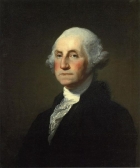World 1745-1901
Trade and the morality of some trade such as slavery are brought into question during this period. Included here are articles providing information about the world structures and the challenges they experienced in this period. Key individuals are explored such as Thomas Payne, and how their reach was British, European and Global. In other articles the encounters with China that are taking place in the 19th century are discussed.
Sort by:
Date (Newest first) | Title A-Z
Show:
All |
Articles |
Podcasts |
Multipage Articles
-

The War of American Independence
ArticleClick to view -

Understanding Slavery
ArticleClick to view -

The Pennsylvanian Origins of British Abolitionism
ArticleClick to view -

The Slave trade and British Abolition, 1787-1807
ArticleClick to view -

Attitudes to Liberty and Enslavement: the career of James Irving, a Liverpool slave ship surgeon and captain
ArticleClick to view -

A-Level Essay: To what extent does the art of the Edo period of Japan reflect the contentment of the classes within its society?
ArticleClick to view -

Polychronicon 121: interpretations of the American Revolution
ArticleClick to view -

The first trans-Atlantic hero? General James Wolfe and British North America
ArticleClick to view -

How did changing conceptions of place lead to conflict in the American West? Reflecting on revision methods for GCSE
ArticleClick to view -

Polychronicon 113: slavery in 20th-century America
ArticleClick to view -

Cunning Plan 97: A-Level: International Relations 1890-1914
ArticleClick to view

